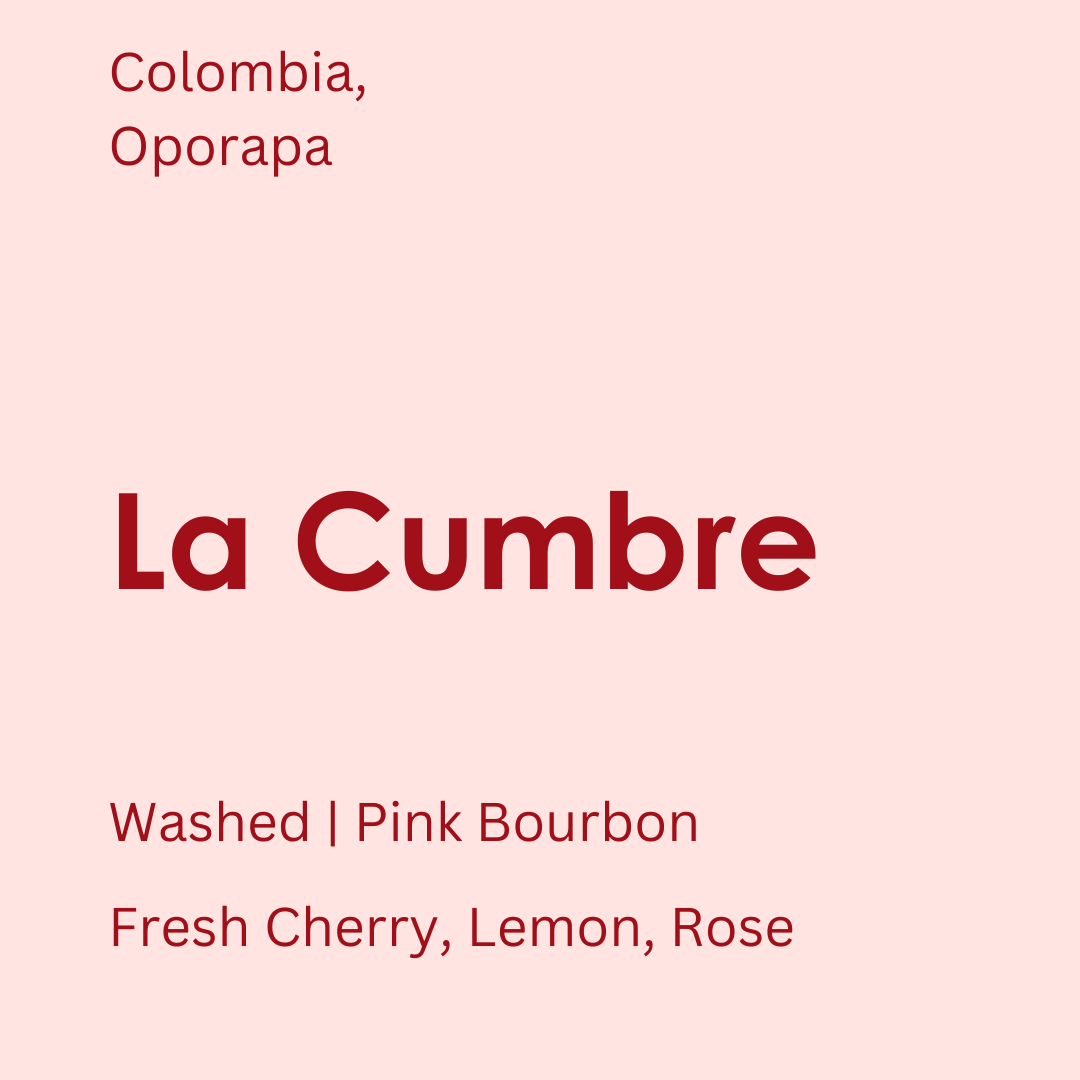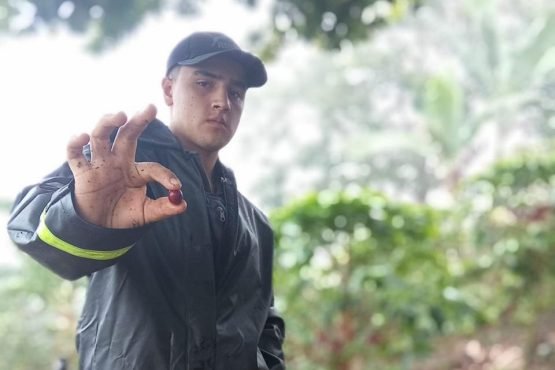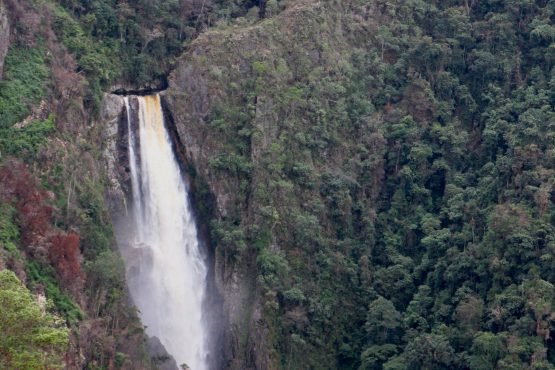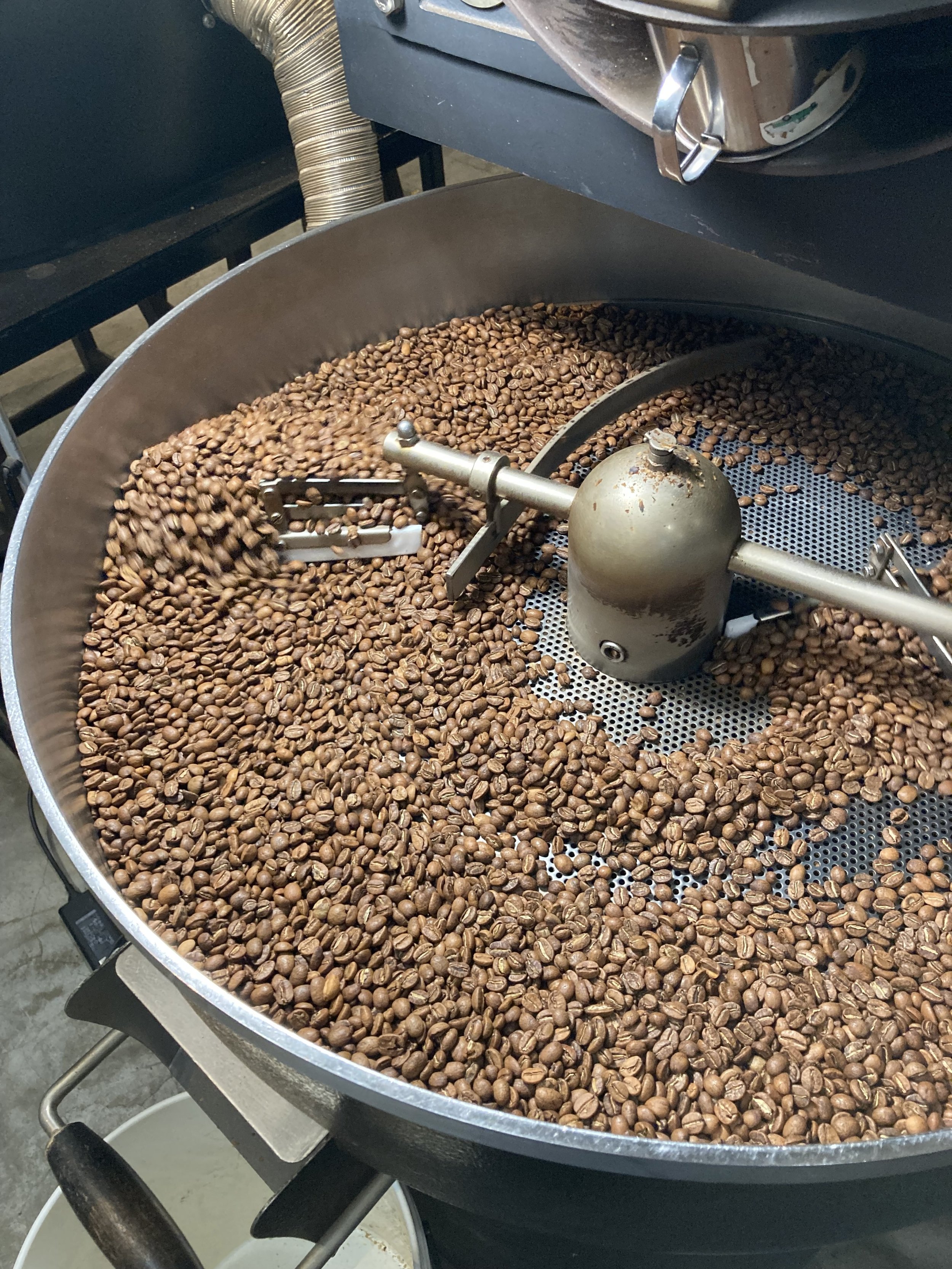This microlot was produced by Andrés Peña and his family, who own the two-hectare farm La Cumbre. The farm sits at 1,850m above sea level, and is located near the town of El Carmen, in the municipality of Oporapa in the southwest of Colombia’s state of Huila. All cherries were hand picked, mostly by Andrés and his family, where at the end of each day, cherries were hand-sorted and left to pre-ferment for up to 24 hours. This was done using permeable nylon sacks, which allow for airflow around the coffee cherry, keeping the internal temperature low and stable.
Once bagged, Andrés carefully placed the cherries in a cool, dry place to protect them from the elements, as high temperatures can accelerate fermentation and introduce undesirable flavours. Fermentation times at La Cumbre are not standardised, instead depending on that day’s workflow and the volume of cherry harvested. Oporapa’s cool climate allows farmers like Andrés to collect 1-2 days’ worth of pickings before they need to pulp and wash the cherries, streamlining operations without risking over-fermented flavours in the final cup.
Following fermentation, the coffee was washed and then carefully sun-dried over 10–18 days in a combination of patio and raised beds, depending on the available space throughout the harvest. Once dry, the coffee was delivered to Pergamino’s warehouse, where it was cupped and graded, and then rested in parchment until it was ready for export.
The cherry was then pulped using a small electric pulper and then placed into a fermentation tank for another 48 hours. Because of the region’s cooler temperatures, producers like Andrés tend to ferment the coffees for longer than usual and will often blend several days’ worth of pickings over a two to three day period. Every day, freshly picked cherry is pulped and added to the mix, which lowers the pH level and – along with the cooler temperatures – allows for an extended fermentation process. This fermentation process contributes to a vibrant, winey acidity in the coffee’s cup profile.
La Cumbre, which translates to ‘the summit’ in Spanish, is mainly planted with Caturra, a variety that was propagated heavily during the 1970s and 1980s when most local farms were established, and Colombia, which was introduced by Colombia’s Coffee Federation (FNC) in the 1980s, as part of the country’s efforts to reduce the incidence of coffee leaf rust without affecting cup quality.
However, recognising that a rare variety like Pink Bourbon (which has a direct lineage to Ethiopian heirloom varieties) would perform well in Oporapa’s climate and fetch higher premiums from specialty buyers like MCM, Andrés has recently planted the variety in a newly renovated section of his farm. This particular lot is 100% Pink Bourbon, which presents an intensely floral and complex flavour profile and an elegant acidity. Like many of his neighbours, Andrés farms his coffee with traditional techniques, applying fertilisers around three times a year after manual weeding and rarely using pesticides.





